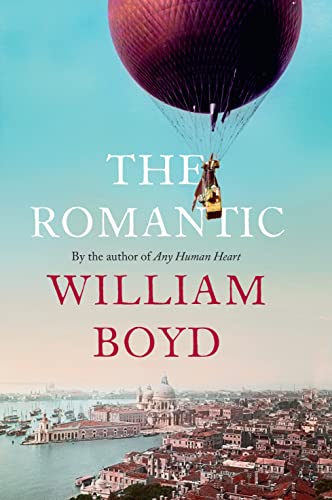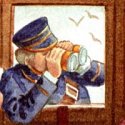Enjoyable read but take it slowly
William Boyd has a strong record of writing lengthy novels featuring the life journey of a singular individual. There is Brodie Moncur in ‘Love is Blind’, Amory Clay in ‘Sweet Caress’ and Logan Mountstuart in ‘Any Human Heart.’ Here we have another unique individual, Cashel Ross in ‘The Romantic‘, another novel of a life fully lived. This review of ‘The Romantic’ by William Boyd aims to place this novel in the idiom of several other historical and literary novels from this author.

Boyd tells us in a prologue how he has written a biography of Ross by using as a source a hundred pages of notes, sketches, and other memorabilia that he has found. The reader must decide if Ross did indeed live the life that Boyd has pieced together from these fragments. Or maybe Boyd is reprising the approach he used in his alleged biography of the American artist, Nat Tate. The latter turned out to be a complete fiction. But then fiction is, well, fictional.
The great love for Raphaella
Whatever the truth, Boyd’s account of Ross’s life goes from him being a drummer boy at the battle of Waterloo, meeting his great love, Raphaella and then journeying round Europe and striking up friendships with Shelley and Byron. He writes a travel guide and a novel, emigrates to America where he farms and marries. He returns to Europe where he is persuaded to become an explorer in Africa, searching for the source of the Nile. Again, he rubs shoulders with historical figures such as Richard Burton. Eventually he takes a job as a consul in Trieste where he becomes involved with illicit trade. Here the novel becomes like a thriller as we wonder how Ross will deal with his latest set of problems.
Ross is a fascinating character, going from one extraordinary situation to another. It’s his own decisions which take him forward. But these are not moral decisions in the sense of choosing between right or wrong. Rather, they are decisions stemming from his own heartfelt instincts. This becomes the underlying theme of this novel – how our own decisions shape the life we lead.
This is a long novel and Boyd keeps the narrative moving forward by not hesitating to leap five or ten years. Occasionally, this gives a disjointed feel and the sense of events being skated over. For example, Ross becomes inadvertently and heavily addicted to opiate painkillers. This could have been a turning point, but Ross decides to kick the habit with as much effort as it takes to quit cigarettes. Really? I had thought that we would see Ross struggling terribly with his addiction but no, it’s just swept aside.
There are shortfalls in depicting characters, particularly with Ignatz, Ross’s companion and fixer. I felt that this important relationship was under-explored and that we needed to know more about why Ignatz sticks with Ross throughout a range of troubles.
Finally, I was unconvinced by Ross’s love for Raphaella. We meet her early on in the 1820s in the heat of their affair but then Ross seems to think of her only occasionally until they meet forty years later. I wondered whether the relationship was insufficiently explored in the text or if Ross has such a busy crowded life that he did in fact think of her only occasionally. In which case, the relationship is quite shallow.
I would have liked to have had more on Ross’s reaction to the century he lives through, a century of as much change as the one which follows it. Yes, there is the occasional mention of new technologies such as the railway or the telegraph. But this would have made for a different type of novel and Boyd sensibly keeps the focus on Cashel Ross and exploring events made him live the life of a romantic, committed to his own way and discovering his own truths.
If you’re a Boyd enthusiast, you will know that you’re in for an enjoyable read with the trademark Boyd approach of detailed depiction of people and places. If you’re new to Boyd, then certainly give it a try but remember that this novel is best read at a slower, almost contemplative pace. There’s no benefit in skimming it to get to more dramatic interludes. This is because Boyd is covering over eighty years of Ross’s life and his complex relationships. You can’t rush the reading of this depth of writing.
